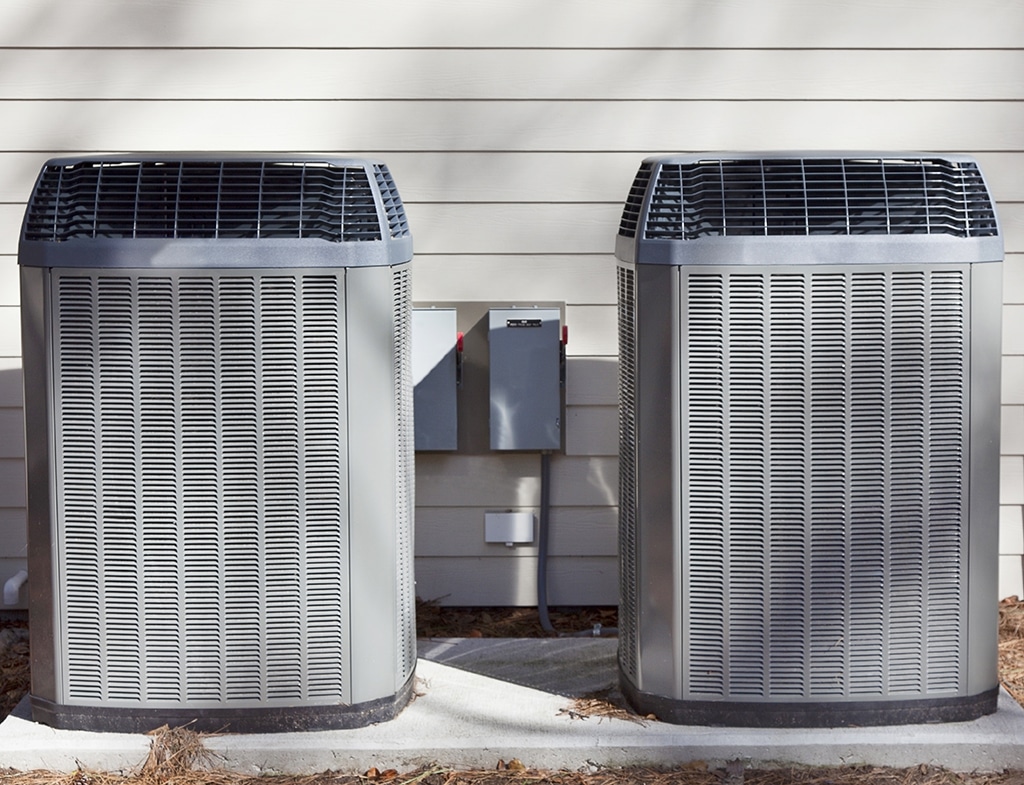
How Can An Air Conditioning Service Soundproof Your AC Unit? | Irving, TX
Does the noise from your air conditioner disrupt your home’s comfort? Do you or other family members feel irritated by the air conditioning sounds at night when you/they need silence for a great sleep? The air conditioning sounds can prove irritating. But did you know that air conditioning noises can be eliminated? There are some measures that you could take with the help of your air conditioning service provider to ensure that your air conditioning unit is silent. Most homeowners find the loud AC sounds annoying and are ready to do anything that would give their years some relief. This isn’t only psychological. Exposure to some of the loud sounds from an air conditioner could damage your hearing.
Are the Loud Air Conditioning Sounds Bad For You?
Although some people might say or even believe that getting worried about air conditioner sounds is pointless, there’s increasing evidence that persistent, loud noises could damage your hearing permanently. The loud noises can potentially damage the cells in your inner year. At worst, the damage to the internal parts of the ear is, in most cases, permanent.
According to WHO, 85 dB for about 8 hours is the safe sound limit for humans. Hence, if the levels of the sound increase, then the excellent listening time reduces or decreases. For instance, you can only listen to about a hundred decibels for about 15 minutes daily. The decibel ratings for an air conditioner vary a lot. A new, quietly operating air conditioner might only produce a sound to levels of about 25dB.
Hence, it’s upon you to work with an air conditioning service provider to implement measures that will reduce the sound levels in your air conditioner. On the other hand, a typical cheap air conditioner produces noise levels of about 79-82 dB. While this isn’t very high, hearing the sound for more prolonged periods could damage your hearing. Hence, you must liaise with an AC repair technician to institute the steps to minimize unwanted air conditioning sounds.
Air Conditioning Sounds Versus Performance-Related Issues
Your air conditioning unit could produce many sounds based on the underlying issue. While some noises might signal deeper performance issues, others are harmless, such as airflow sounds though annoying. Generally, steady airflow blowing sounds shouldn’t be a concern for homeowners. You should immediately call an air conditioning service provider to inspect your AC unit and perform the necessary repairs whenever you hear your air conditioner producing bubbling, banging, buzzing, whistling, and rattling sounds.
These noises could be caused by compressor issues, a motor fan belt that is out of position, or electrical problems within the air conditioner, among other issues that could render your air conditioner useless. Hence, air conditioning sounds affect your AC unit’s performance and should be addressed by a reliable air conditioning service provider immediately. For instance, compressor problems result in banging or clanging sounds that make the compression of the refrigerant difficult, meaning that cooling your Irving, TX, home could prove a challenge. If the blower motor fan is out of position, you might hear a screeching sound.
This means the conditioned air cannot be pushed to other parts of your home. So, is there a nexus between air conditioning sounds and the performance of an air conditioning unit? Simple answer, yes. Hence, whenever you hear these noises from an air conditioner, it should signal that you call a technician for a thorough inspection of the AC unit and conduct the required air conditioning services.
What Is the Ideal AC Sound Level?
An average conversation produces sound levels of somewhere between 40dB-60dB. This should feel similar to the sound produced by an electric toothbrush and sounds within library settings. No homeowner wants their air conditioning systems to produce loud buzzing or banging sounds. Hence, you must aim for an air conditioner sound level between 40-60 db. An air conditioner is said to be quiet if they produce 40dB.
Do you think this is impossible? Then you might be shocked to learn that there are air conditioners that have sound levels of about 19dB, somewhat equal to someone whispering from about 5 ft away. Hence, consult a reliable AC repair professional when purchasing a new air conditioning unit. This is because these professionals have experience for many years and can help you determine the right AC unit for your home.
Measures to Reduce AC Sound Levels
Does your unit produce loud noises? Is your home becoming unbearable to live in because of these sounds? If your air conditioning unit is not the quietest and you want to minimize the levels of sounds it produces, then you are at the right place. This section will discuss the measures that your air conditioning service provider in Irving, TX, could help you take to ensure that your home is comfortable.
To ensure that the AC units do not disturb your nights, institute the following measures. However, this doesn’t mean that you mask the sounds. Remember that the sounds are a sign that your AC unit has underlying issues that require the swift attention of a reliable AC repair technician. Below are some practical tips for reducing air conditioning unit sounds.
Install the Outdoor Condenser Unit On a Level Pad
The other reason the air conditioner might produce disturbing sounds is if installed on an unsteady or uneven level. Installing the unit on an unlevelled condenser pad results in vibrations whenever you turn on the AC unit. The vibration can result in increased sound produced by the air conditioning unit. However, ensure that your outdoor condenser pads are stable or level. Hence, let a professional AC repair technician install your air conditioning unit. They have enough experience in AC unit installations and know to install the air conditioner on level ground to prevent vibrations.
Using an AC Sound Blanket
An AC sound blanket is a quick and low-cost technique to minimize air conditioner noise immediately. Most brands offer details on which sound blanket tightly covers their condenser unit. However, you can choose a universal AC sound blanket if a comparable AC sound blanket is not available. There is a widespread belief that utilizing a sound blanket can somehow lessen the effectiveness of the air conditioner or lead to overheating. The reverse is true. Sound blankets improve airflow and also insulate the condensing unit, which helps in enhancing temperature stability. Therefore, have an air conditioning service provider in Irving, TX, lay an AC sound blanket to ensure those disturbing sounds don’t impact your home.
Install Sound Barriers
A fence around your outdoor condensing unit might act as a sound barrier. Fortunately, this is one thing a technician can do during routine air conditioning service visits to your home. After they inspect the outdoor unit and find that birds and rodents have nested in the condenser, they may recommend that you place a fence around the condenser. The sound originating from the condensing unit can be quieted by installing any barrier around it.
There are several things you need to keep in mind, though. The first thing to do is to ensure the fence is made of material that doesn’t echo, ideally wood. Second, leave at least two feet of space around the condenser to ensure proper ventilation. Finally, cover the fence from top to bottom with soundproofing material, such as polyvinyl or plastic vinyl film. Along with lowering AC noise, it will also conceal your outside unit.
Insulate the Ducts
The other reason your Irving, TX, home might be uncomfortable with the sounds is the issues from the air ducts. Besides carrying the cooled or conditioned air, the air ducts also carry sounds from one room to another. The unwanted noises are absorbed by soundproofing the air ducts before they reach your home. Insulating the air ducts also means energy won’t be lost because the cooled air is warmed before reaching your home. The insulation layer also means that the rodents cannot find their way into the air ducts.
Hence, insulating the air ducts reduces the sounds traveling therein and is essential in pest- and rodent-proofing your ductworks. Energy loss through the air ducts should be a cause for concern as it will reflect in your monthly energy utility bill. Hence, have an air conditioning service provider insulate the air ducts to prevent all these issues. The professional can use fiberglass insulation for soundproofing. It is the best.
Schedule Regular Maintenance
A regular air conditioning service might also cause excessively loud HVAC noises. For instance, unclean and dull fan blades have poor aerodynamics, which increases sound levels. Similarly, if your air filters are dirty, your air conditioner will have to work more, making more noise. Planning routine maintenance can ensure that your AC operates as quietly as possible. Below are some of the air conditioning services that can ensure that your AC unit remains quiet
Cleaning the Air Filters
The air filters may become clogged with dust and grime after extensive use. If you have pets at your Irving, TX, home, the filters may become blocked by even more debris, such as fur. The outcome? Decreased cooling and efficiency from your air conditioning system. It is recommended that you change the air filters after every 1-3 months. If you have pets, this should be done monthly because the pet danger might overwhelm the air filter. Additionally, talk to an air conditioning service provider about installing HEPA filters or those with a higher MERV rating. Furthermore, a smart air conditioning system controller will help alert you when to update your AC filter!
Lubricate Any Moving Parts
The other air conditioning service that your technician might undertake to minimize the noise from your AC unit is lubricating the moving parts. To reduce friction, all HVAC systems have mechanical parts that must be oiled. The lubricating procedure reduces wear and tear by facilitating the components’ smooth operation. Professional air conditioning service providers clean the dust from machine components and provide the necessary lubricant to reduce friction. The lubricating procedure should be repeated frequently to prevent your system from suffering long-term harm.
Inspecting the Exhaust in Central HVAC Systems
An air conditioning service provider will inspect all the exhaust systems to ensure they aren’t blocked or clogged. If the air blows against the blockage, it might produce a loud sound that could make your Irving, TX, home uncomfortable. Clogged exhaust outlets in ducted systems put your safety and the quality of the air in danger by fostering a risky growth of mildew and algae. An air conditioning service provider must occasionally clean out the furnace exhaust to ensure that the air exiting the vents flows smoothly. Additionally, soot and debris might build up and obstruct a gas’s smooth exit, decreasing the effectiveness of the HVAC system.
Inspecting the Fuel Lines
Fuel lines deliver gas to the furnace in your air conditioner. Fuel leaks might present a fire risk. Additionally, soot can accumulate in fuel lines, which reduces system effectiveness. Routine air conditioning service will eliminate all blockage traces, and leaky fuel lines will be checked before the problem gets out of control.
Check the Electrical Connections
The other air conditioning service that can reduce the sounds is regularly checking the ducted HVAC system’s electrical wires and connections. This is because they could cause electrical short circuits and sparks if they’re loose, which is dangerous. Additionally, they will produce a buzzing sound that can be pretty unsettling. They may eventually totally fall off, stopping your HVAC system from operating as it should. Have an air conditioning service provider inspect the connections because they might be a significant cause of concern.
An air conditioner does a great job of ensuring that your home is cool during those hot summers in Irving, TX. However, it can run into issues that make it produce loud sounds. Contact us at One Hour Air Conditioning & Heating of Dallas to soundproof your air conditioning system.





